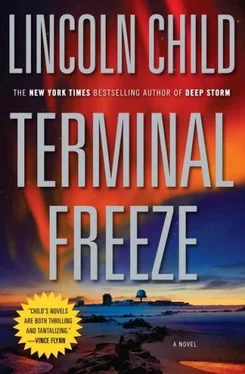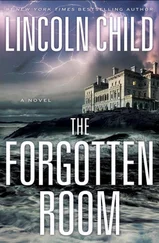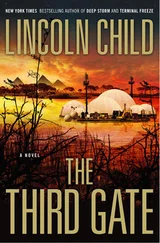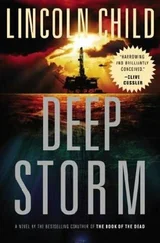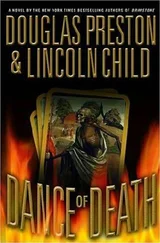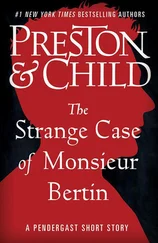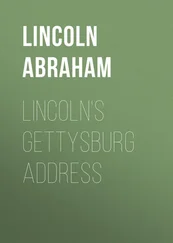“I have some assignments for you,” he told them. “Some special footage I need.”
The two nodded.
“Consider these projects to be under the radar. Surprise segments I’m going to insert for added effect. Don’t take any others along. And nobody is to know-not Kari, not Wolff.”
The cinematographers looked at each other, then nodded again, a little more slowly this time.
“Have you heard the news?”
“What news?” Fortnum replied.
“Josh Peters is dead.”
“Josh?” the two men said in unison.
“How?” asked Toussaint.
“The scientists think a polar bear got him-it happened outside. Wolff thinks it was whoever stole the cat.”
“Christ,” said Fortnum. He’d gone dead white.
“Yes. And we have to capitalize on this while we still can.”
The men looked at him blankly.
“Kari is going around right now, spreading the word of Josh’s death.” He turned to Fortnum. “Allan, I need you to find her. Get reaction shots from the crew. The more extreme, the better. But be subtle about it, try not to clue Kari in on what you’re going for. If you don’t get the reactions you want, wait until Kari has left and then embellish on her descriptions while the camera’s running. I want to see naked fear. Hysterical tears would be even better.”
A puzzled look had spread over Fortnum’s pallid features. “This is our own crew you’re talking about filming-right?”
“Of course. They’re the only ones around who don’t know about Peters yet.” Conti waved an impatient hand. “You need to hurry up, Kari’s out there already, playing Johnny Appleseed with news of the killing.”
Fortnum opened his mouth as if to raise another objection. Then he closed it instead and-with one last curious look at Conti-walked off in the direction of the crews’ quarters.
Conti watched him go. When the DP was out of sight, he turned toward Toussaint. “I have an even more important job for you. The body is currently being held in the infirmary. It’s in the south wing, I’ll sketch out a map for you. They’re going to place it in cold storage, but I heard them saying that some repairs are needed to the unit; it won’t be ready and chilled until tomorrow. That’s our opportunity.”
“ Opportunity,” Toussaint repeated a little uncertainly.
“Don’t you understand? Once the body’s in the freezer, it’ll be locked up.” Conti tried to master the almost frantic impatience and frustration that had been building within him since he’d first heard about the missing cat. “It’s like this. Wolff doesn’t want us filming Peters’s corpse.”
“Naturally.” Toussaint’s voice sounded detached, far away.
“But we have to. This is a fluid situation; it’s changing all the time. The documentary has to change with it.” Conti grasped the cameraman’s sleeve. “Our livelihoods, our reputations, are on the line here. We were dealt a rotten hand. That cat was the heart and soul of our show-and now it’s gone. But something new is beginning to happen. What started this morning as just a mystery has become a murder mystery. Do you see? Done right, this could be even bigger than Raising the Tiger. With the publicity that’s already run we’ve got a built-in audience. And we can give them something nobody’s given them before: a ‘closed-box’ documentary that suddenly morphs into something completely different. A crime drama that plays out in real time, among the actual crew.”
Toussaint blinked in reply.
“But you can’t have a murder mystery without a shot of the corpse. That’s where you come in. I want you to wait until dinner. Things will have settled down a little by then. I’ll make sure the soldiers are occupied-nobody will be around. It’ll be quick. Consider it a recon: get in, get the shot, get out. Don’t worry about the lighting or the framing or anything like that. It’s the footage that’s important. Do it in one long take; I can fix it on the DataCine back in New York. Okay?”
Toussaint nodded slowly.
“Good man. And listen-remember not to tell anybody. Not even Fortnum. It’ll be our secret-until the final cut, and the applause of the network execs. Understood?”
“Understood,” said Toussaint in a very quiet voice.
Conti gave a quick, birdlike nod. “Now, prepare your equipment. I’ll make you that map.”
The set of rooms was small and stripped as bare as a monk’s cell. Only the skeletal frames of bunk beds and a few sad-looking metal cabinets remained. And yet as he looked around, Logan felt certain this had been the scientists’ quarters.
Locating it had proven a challenge: C Level was cluttered with so much spare junk, it was hard to discern habitat from mere surplus bedding. But there were precisely eight beds here, arranged in attitudes that suggested an actual living arrangement rather than mere storage. There were four bunks in the central room, two above two. A single bunk in a good-sized room to one side-no doubt the chief scientist’s quarters. Two more beds in a room on the other side. And one last bunk in a cramped space off the bathroom barely larger than a closet.
Logan switched on every available light. Then, hands behind his back, he strolled slowly through the suite of rooms, looking around, peering into the empty cabinets, silently cajoling the long-departed ghosts to whisper their secrets to him. He’d hoped to find something: tools, perhaps, or equipment, printouts, photos. But it was clear the quarters had been carefully searched long ago, every item of interest removed and-if standard operating procedure in such classified matters was followed-immediately incinerated. Two hangers hung forlornly in a closet; a button lay on the floor, trailing thread behind it like a kite string. A tube of toothpaste sat on the metal shelf above the bathroom sink, curled and desiccated. It seemed the space had little left to tell.
Logan returned to the central room. He had lived in a similar space himself once, years ago, on an archaeological dig near Masada. The Israeli army had loaned the team of scientists and historians a remote set of barracks to bunk in. Logan shook his head, recalling the aridity and the isolation. It had felt, he remembered, a million miles from anywhere. Just as this place did.
He settled slowly onto the wire springs of the nearest bunk. Empty rooms or not, scientists left trails. Their minds were always busy. They kept journals. They had ideas and observations to collect, and never more so than when away from civilization, far from phones or research assistants. There would be notes to jot down, things to come back to later in the comfort of private labs: ideas for experiments, theories for research papers. His wife had teased him about this very thing more than once, calling him a conceptual pack rat. “Other people hoard dish towels, greeting cards, spare toasters,” she’d said. “You hoard theories.” The scientists here would have been no different.
Except for one thing. They-and their theories-never got out.
He rose from the bed, looked around at the four bunks again. The chummiest guys, the socializers, would have slept in this room, played poker or bridge. He walked slowly through the other rooms, stopping at last in the cramped compartment. This dark and cave-like space would probably have been the least desirable berth. And yet it was the one he would have chosen: private, quiet, the ideal place to concentrate on one’s thoughts.
Or to write a journal.
As he stood there-in the acute and watchful silence-an unexpected but strangely delicious shudder passed through him. All of a sudden he felt intensely alive. Even if I don’t succeed here, he thought, even if this whole wild-goose chase proves a failure, right now is what makes it all worthwhile. There was something indefinably glorious about the hunt itself: here, in this room, three floors beneath the ice, trying to piece together the struggles of those men, fifty years ago; putting himself in their shoes; and maybe-just maybe-finding gold dust.
Читать дальше
